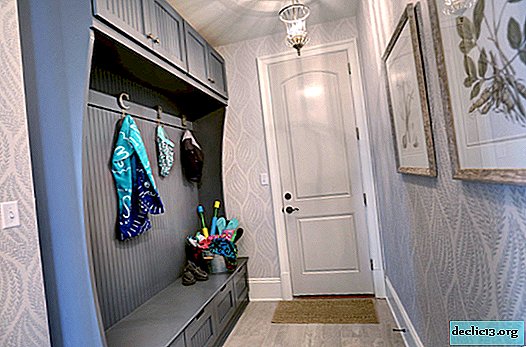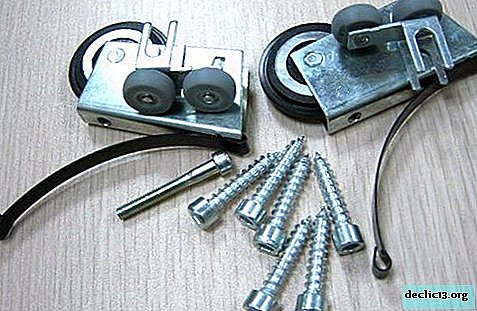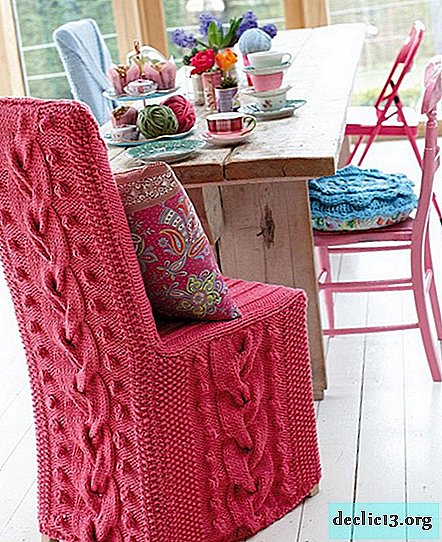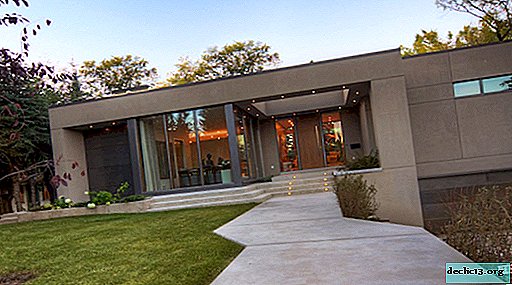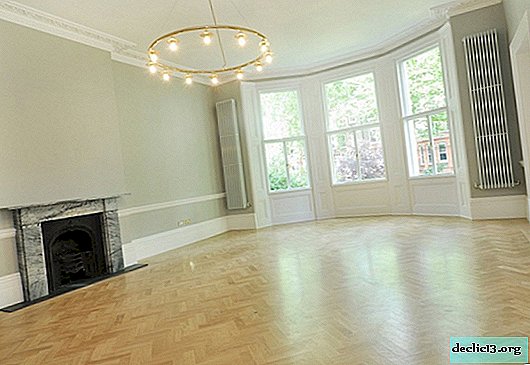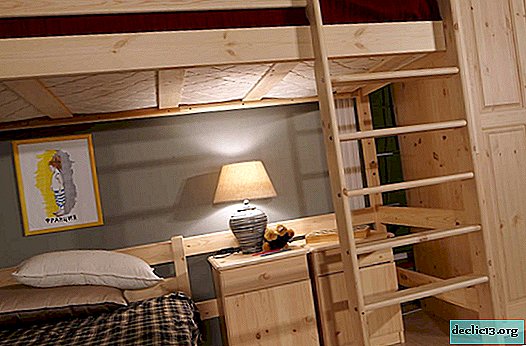Where to start do-it-yourself apartment renovation: action plan, tips, video

Apartment renovation is a painstaking process that requires taking into account all sorts of little things. We are talking about a thorough plan of action, calculating estimates, choosing materials, tools and equipment, without which repair is impossible. Therefore, the question of where to start repairing an apartment with your own hands is relevant.
You can entrust the task to the master or team of repairmen. As a result, the issues will be decided without your participation. In an effort to save money, people make repairs in a new building or a secondary property on their own. If you are thinking of saving, housing repair tips come in handy.
Step-by-Step Action Plan
I will not go deep into every little thing, otherwise the discussion will drag on. Instead, I will focus on the main tips. After reviewing the material, you will find out where to start the repair, so that it is completed faster, because success depends on the correct sequence of actions.
- Make a repair plan. Will become the basis for further action. Think about the rooms and the nature of the work to be done. Repair can be overhaul or cosmetic. The first type involves the alignment of walls and ceilings, redevelopment, flooring, and the second comes down to replacing the finish.
- Calculate the estimate. Repair is accompanied by material costs, so the estimate is the first after planning what is recommended to be done. After calculating the costs, you will receive the amount that will be needed for repairs. It depends on the type and quality of building materials. The amount of costs is determined by the result that you seek to obtain.
- Pick up inventory and materials. If you don’t have confidence in apartment repair masters and plan to do it yourself, arm yourself with a set of spatulas, sandpaper, a hammer, rollers and other construction equipment. Buy plaster, putty and primer.
- Prepare the premises. Remove shelves, chandeliers and lamps, take out furniture, whether it be a sofa or a wall. If this is not possible, leave the pieces of furniture aside and cover with tarpaulin, film or cloth.
- Doors and openings. If repairs are planned in the same room, close the interior doors and openings using damp rags. As a result, dust will not penetrate the premises.
- Work with the ceiling and walls. Remove the old finish from the surface: paint, whitewash, wallpaper. Using emery and a spatula, this is not difficult. Use protective equipment, including goggles and a respirator. If you have difficulty removing wallpaper, moisten with warm water.
- Spatula and hammer. Use a spatula and a hammer to remove bumps, paint and tubercles. Knock the painted surface with a hammer and smooth out with a spatula. In case of difficulty, treat the paint with a solvent. Use a spatula and water to remove whitewash.
- Primer. After removing the old finish, treat the surface with a primer. After drying, cover the potholes and deep gaps with plaster. Putty is suitable for eliminating shallow recesses. After drying, clean the surface with sandpaper and again pass with a primer.
Video instructions
With the help of the instructions, you can easily prepare your home for other repair and finishing work that will transform the interior. If you intend to use the services of a repair team, I recommend that you complete the preparatory phase yourself in order to save a tidy sum.
Where to start repair in a new building
People who have become happy owners of an apartment in a new building face a problem due to the need to make repairs. It is recommended to carry out repairs in new housing, taking into account various factors that are not known to everyone.
If you plan to tidy up new housing, I do not recommend using expensive materials to finish the apartment. For several years, the structure is subject to shrinkage, as a result, finishing materials are deformed and covered with cracks. When doing repairs, get ready that you will have to return to this issue in a few years.
Repair of an apartment in a new building depends on the structure of the building. In monolithic houses, apartments with a free layout, represented by a free space bounded by external walls. The arrangement of such housing is complex and of a large-scale nature, since during the repair it is necessary to act in accordance with building codes.
The rules prohibit equipping enclosed loggias with a heating system, dismantling ventilation ducts or moving the sewer riser without approval from the relevant authorities.
You can also buy housing in a panel house. Developers rent apartments with partitions and a screed that facilitate repair. In some cases, apartments are equipped with wiring, pipe wiring and rough trim. If you do not plan to dismantle everything, carry out repairs yourself.
When arranging a living space in a panel-type house, keep in mind that the shrinkage of the building takes at least two years. Therefore, be sure to reinforce the walls using a mesh. I do not recommend laying tiles during the first repair. Better use plastic panels. The ceilings and walls in such apartments are initially covered with cracks.
Repair Steps
Let's talk about the stages of repair in a new building. This is not difficult if there are certain skills. Otherwise, assign home improvement to professionals.
- Issue with the layout. If you want the apartment to be comfortable and original, at the initial stage, demolish unnecessary partitions and erect new walls at your discretion. For this purpose, drywall sheets are used.
- The sequence of work in the new building. Depends on the level of staffing. If the housing has sewage, water and wiring, this simplifies the work. If the apartment is deprived of these things, use the services of a wizard who professionally installs.
- Screed. The standard screed leaves much to be desired, I do not advise you to leave it unattended, since there will be problems during the installation of the floor covering. To begin, level the floors, and then cover with a plastic compound. To organize floors, use a parquet board or tile.
- Soundproofing in a new building. If you don’t want to hear the neighbors talk, take care of the soundproofing of the apartment, paying attention to the ceilings and walls.
- Wall alignment. Perform the plastering, and then apply the finishing material. When choosing building materials, consider shrinkage. Professionals advise using silk-screen wallpapers for wall decoration. They are characterized by high density, hiding small cracks.
- Decoration of ceilings. For this purpose, stretch ceilings made of fabric or plastic are suitable, which do not deform and do not become cracked. To get an original design, complement the drywall finish.
- Doors. Install last. An exception is only the windows and the front door, which are mounted at the initial stage. There are no rules for the selection and installation of doors for a new building. Buy the product as you wish.
Now you have an idea of where to start repairs at home. The sequence of work is known. Choose the interior and style using thematic forums or magazines.
How to save
In conclusion, I will talk about savings. After preliminary calculations, a terrifying amount will be obtained, but this is not a reason for worries. This is the cost of living in a comfortable, cozy and renovated apartment. There is a way out of any situation. Instead of burning nerve cells in vain, think about how to save. With the right approach, save a decent portion of the money.
Use cheaper building and decoration materials. There are many solutions on the market that offer reasonable value for money.
Save on equipment. Only to save on plumbing, electrics, ventilation and heating do not advise. After installing low-quality appliances, spend money on repairs or buying a replacement.
For a limited budget, do it yourself. If there is no time, look for a team of repairmen in the city who do not pursue large profits and do not overestimate the cost of services.
To save money, follow these guidelines.
- Before the repair, ring the shops and make a list of outlets that offer building materials at competitive prices.
- Buy ads. Usually they are used to sell materials that remain after repair, which affects the cost.
- To paint window frames, doors and elements of the heating system, use ordinary paint. The use of expensive paints and varnishes will not provide the best effect.
- Use the tiles to finish the floors in the kitchen, toilet and bathroom. At first glance it seems that it is expensive. But given that even high-quality linoleum will lose its original appearance in a few years, the costs will pay off.
- To putty the walls before decorating with wallpaper, use gypsum putty. It will not provide such a smooth surface as acrylic putty, but with such a finish, this is not required, the wallpaper will hide minor imperfections.
- People, trying to make the interior of the apartment perfect, buy expensive borders. Instead, buy a roll of striped wallpaper and dissolve into separate strips. The result is a curb.
- Do not disregard wallpaper for painting. They are more expensive than the paper counterpart, but wider and longer. And after a few years, the interior of the room can be changed using a different color of paint. You can glue it using home paste.
- When decorating a children's room, do not use wallpapers with animals and cartoon characters. This is an expensive treat that makes your eyes tired. Take advantage of a roll of "fabulous wallpapers" complemented by cheap plain pastel shades.

